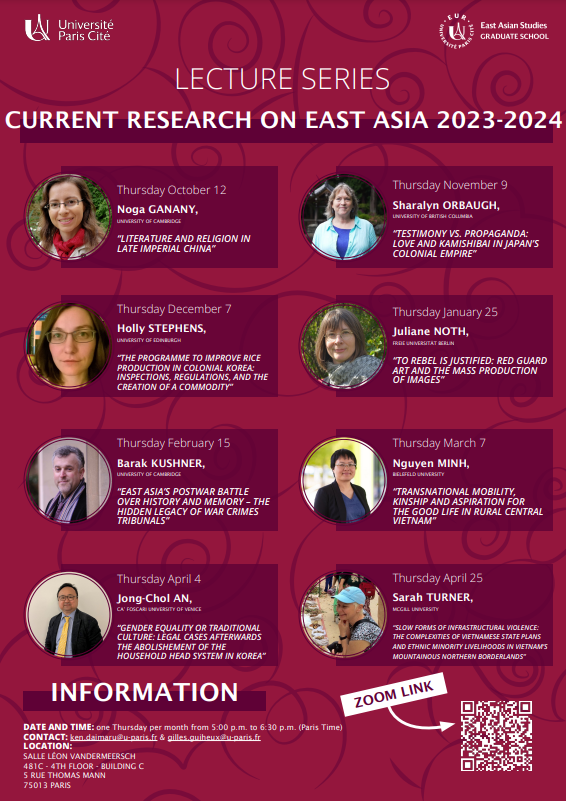time zone will be applied.
Report this post?

As part of the Université Paris Cité’s commitment to global engagement, creativity and critical knowledge and research, the Paris Graduate School of East Asian Studies is organizing a series of lectures one Thursday per month by international scholars for the 2023-2024 academic year.
The lecture is a hybrid event.
For virtual participation, see Zoom link.
Abstract of the talk:
Introduced in 1920, the Programme to Increase Rice Production (朝鮮産米増殖企劃) is well known as a representative agricultural policy of the colonial government, with the goal to increase the export of Korean rice to Japan. Accordingly, much research into colonial rice policies has focused on the impact of the PIRP, both in the expansion of rural debt that financed elaborate irrigation projects as well as the declining domestic consumption of rice even as exports to Japan increased. However, colonial attempts to “improve” (改良) rice production have received less attention, even as they worked in parallel with projects to increase rice cultivation and its export.
This talk examines colonial attempts to improve Korean rice production as a complement to existing understandings of colonial rice policies. In some cases, “improvement” overlapped with the goal of increasing rice production, as in the promotion of high-yielding seed varieties. Nonetheless, a focus on improvement also brings into view additional consequences of Japanese efforts to develop Korean rice as a commodity for export. Through a focus on grain inspections (米穀検査), which were mandated for rice exports from 1915, this talk explores the development of the grain-processing industry in colonial Korea, the bifurcation of a colonial market for rice as a commercial good, and the implications of improvement policies for Korean farmers.